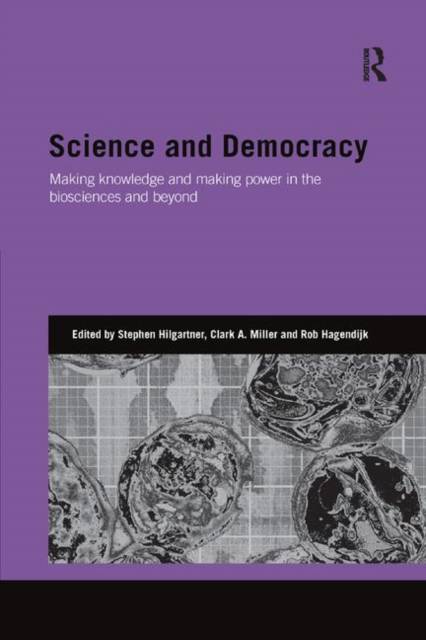
- Afhalen na 1 uur in een winkel met voorraad
- In januari gratis thuislevering in België
- Ruim aanbod met 7 miljoen producten
- Afhalen na 1 uur in een winkel met voorraad
- In januari gratis thuislevering in België
- Ruim aanbod met 7 miljoen producten
Science and Democracy
Making Knowledge and Making Power in the Biosciences and Beyond
Omschrijving
In the life sciences and beyond, new developments in science and technology and the creation of new social orders go hand in hand. In short, science and society are simultaneously and reciprocally coproduced and changed. Scientific research not only produces new knowledge and technological systems but also constitutes new forms of expertise and contributes to the emergence of new modes of living and new forms of exchange. These dynamic processes are tightly connected to significant redistributions of wealth and power, and they sometimes threaten and sometimes enhance democracy. Understanding these phenomena poses important intellectual and normative challenges: neither traditional social sciences nor prevailing modes of democratic governance have fully grappled with the deep and growing significance of knowledge-making in twenty-first century politics and markets.
Building on new work in science and technology studies (STS), this book advances the systematic analysis of the coproduction of knowledge and power in contemporary societies. Using case studies in the new life sciences, supplemented with cases on informatics and other topics such as climate science, this book presents a theoretical framing of coproduction processes while also providing detailed empirical analyses and nuanced comparative work.
Science and Democracy: Knowledge as Wealth and Power in the Biosciences and Beyond will be interesting for students of sociology, science & technology studies, history of science, genetics, political science, and public administration.
Specificaties
Betrokkenen
- Uitgeverij:
Inhoud
- Aantal bladzijden:
- 268
- Taal:
- Engels
- Reeks:
Eigenschappen
- Productcode (EAN):
- 9780367867867
- Verschijningsdatum:
- 12/12/2019
- Uitvoering:
- Paperback
- Formaat:
- Trade paperback (VS)
- Afmetingen:
- 156 mm x 234 mm
- Gewicht:
- 381 g

Alleen bij Standaard Boekhandel
Beoordelingen
We publiceren alleen reviews die voldoen aan de voorwaarden voor reviews. Bekijk onze voorwaarden voor reviews.








